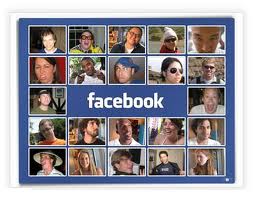October is National Cyber Safety Awareness Month, however we also should take caution to what we are posting online – and this may be the reminder we need.
You posted what?!
As we live more of our lives online, social media has become the new water cooler for employees to discuss working conditions. On one hand, employers have the fear of disgruntled employees doing some serious brand damage online. On the other, they have the risk of being sued for violating federal law.

Source: Online Paralegal Programs
Everybody’s Online: At Least Almost Everybody
7 in 10
Adult Internet users who use social networking sites
The younger the worker, the more likely they use social media:
Percentage of social media use by age group
18-29 83%
30-49 77%
50-64 52%
65+ 32%
15½ hours
Average amount of time spent per month on Facebook
1 in 4
Facebook users who don’t manage their privacy settings
6 in 10
Workers who say they are unsatisfied with their jobs
What does all of this mean? That you probably use Facebook or other forms of social media, and you use it a lot. It also means you’ve probably got some things to gripe about once you get home from work. It’s not a leap to say it’s at least tempting to unload your job dissatisfaction on social media. But be careful …
What the Law Says
What about free speech, you ask? The First Amendment protects you from legal consequences of protected speech, but it doesn’t mean you are immune from all negative effects. You would probably expect to be fired—or at least reprimanded—if you insulted your boss to her face, so you should expect it if you do so online and the wrong person finds out.
But laws vary by state, as more lawmakers are recognizing and protecting the rights of employees in their off-the-clock communications. Generally speaking, an employer can intervene when:
- An employee posts during work hours
- An employee’s posts endanger the company (such as by revealing confidential information)
The National Labor Relations Board has ruled that employers cannot fire workers acting with other employees to initiate a group action against a perceived injustice by their employer.
It’s Happening Everywhere
Here’s just a sampling of the stories of workers who were fired for what they said in social media:
Where: London, Buckingham Palace
Who: Palace guard
Why: The 18-year-old guard slammed Kate Middleton in a Facebook post
Where: O’Hare Airport, Chicago
Who: TSA baggage screener
Why: The nine-year TSA veteran repeatedly went on racist and homophobic rants publicly on Facebook
Where: Rhode Island
Who: Physician
Why: A 48-year-old doctor at a hospital posted information about an emergency room patient
Where: Arkansas
Who: Police officer
Why: The office posted a warning to residents not to drink and drive; his supervisor said the post compromised a planned DUI checkpoint
Where: Michigan
Who: Community college professor
Why: The professor used the story of a failing student in a status update
Where: Massachusetts
Who: Firefighter/paramedic
Why: Posting negative things about gays, mentally challenged people, public officials and others who disagreed with him
Where: Grand Rapids, Michigan
Who: Several hospital employees
Why: A worker snapped a photo of a woman he thought was attractive and shared it on Facebook; he was fired and so were his coworkers who “liked” the photo
Where: Chicago
Who: Bartender
Why: Making racist comments that soon went viral
Not Fired — Not Even Hired
The other part of this equation is making sure your online persona is clean to begin with, because potential employers are watching.
3 in 4
Recruiters required to conduct online research on candidates
70%
Recruiters who have rejected candidates based on online investigations
What employers are looking for:
65% Does the candidate present himself or herself professionally?
51% Is the candidate a good fit for company culture?
51% Want to learn more about qualifications
35% Is the candidate well-rounded
12% Reasons not to hire the candidate
SOURCES
http://pewinternet.org
http://www.statisticbrain.com
http://blog.bufferapp.com
http://www.huffingtonpost.com
http://www.wzzm13.com
http://college.monster.com
http://thenextweb.com










